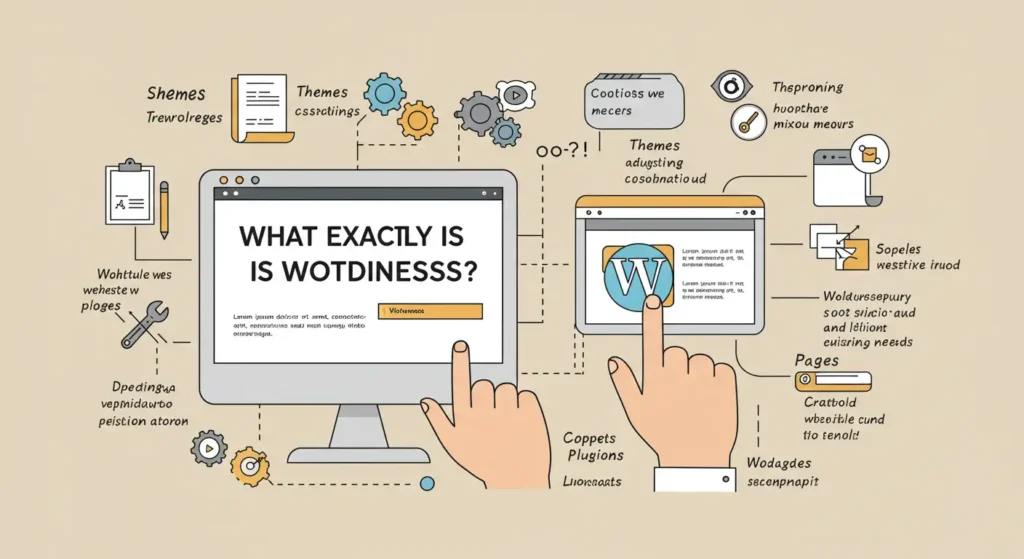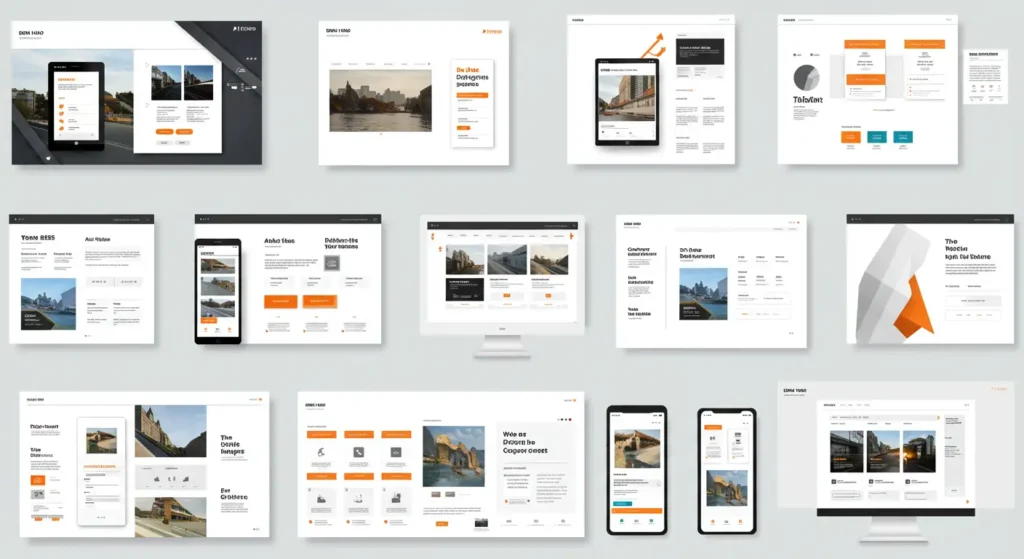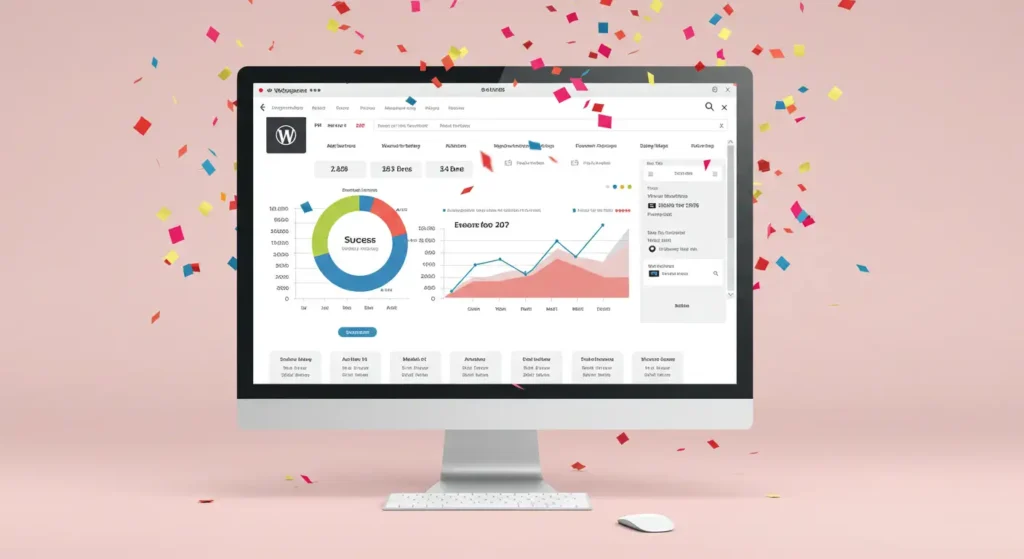In the vast and ever-expanding digital landscape, a website is a crucial asset for anyone from a small business owner to a multinational corporation. While the idea of building a website from scratch might seem daunting, a powerful and accessible tool has democratized the process for millions: WordPress. It’s far more than just a blogging platform; it’s a versatile and robust content management system (CMS) that powers over 43% of all websites on the internet. This isn’t just a number; it represents a global phenomenon built on flexibility, community, and ease of use.

What Exactly Is WordPress?
At its core, WordPress is a Content Management System (CMS). Think of a CMS as a user-friendly interface that sits between you and the technical code of your website. Instead of writing HTML, CSS, and JavaScript, you can manage your site’s content—text, images, videos, and more—through an intuitive dashboard. This allows people without any programming knowledge to create, edit, and publish content effortlessly.
There are two distinct versions of WordPress, which can sometimes be a point of confusion for newcomers:
WordPress.com: This is a hosted service. It’s an all-in-one solution where WordPress manages the software, hosting, and security for you. It’s an excellent choice for beginners who want to get a blog or simple website up and running quickly with minimal technical overhead. However, it offers less control and customization compared to its self-hosted counterpart.
WordPress.org: This is the self-hosted version. You download the free WordPress software, install it on your own web hosting server, and have complete control over every aspect of your website. This is what the vast majority of professionals, businesses, and developers use. The true power and flexibility of WordPress lie in this version.

Why Is WordPress So Widely Adopted?
The phenomenal growth of WordPress is not a coincidence. It’s the result of several key features that make it an unmatched solution for a wide range of users.
1. Unparalleled Flexibility and Customization
This is arguably the biggest reason for its popularity. No matter what kind of website you want to build—be it an e-commerce store, a portfolio, a corporate site, or a simple personal blog—WordPress can handle it. This flexibility is largely due to two powerful features: themes and plugins.

Themes
A WordPress theme controls the design and layout of your site. You can choose from thousands of free and premium themes to instantly change your site's appearance. Whether you want a minimalist aesthetic or a bold, professional design, there's a theme for it. You can switch themes with a few clicks, transforming your entire site's look without affecting its content.

Plugins
Plugins are like apps for your website. They add specific functionalities. Want to add an online store? Install an e-commerce plugin like WooCommerce. Need to improve your site's SEO? Use a plugin like Yoast SEO. There are tens of thousands of plugins available, offering everything from contact forms and security enhancements to social media integration and analytics.

2. Open Source and Community-Driven
WordPress is open-source software, which means its source code is freely available for anyone to use, modify, and distribute. This has fostered a massive, global community of developers, designers, and enthusiasts who constantly contribute to its development. The result is a vibrant ecosystem where bugs are quickly fixed, new features are regularly added, and a wealth of free resources, tutorials, and support are available online.

3. SEO-Friendly Out of the Box
Search engine optimization (SEO) is critical for a website’s success, and WordPress is built with it in mind. The core software is well-structured and clean, making it easy for search engines like Google to crawl and index your content. Furthermore, the availability of powerful SEO plugins allows you to easily optimize your pages and posts with meta descriptions, alt text for images, and structured data, giving you a significant advantage in search rankings.

Who Uses WordPress?
The user base of WordPress is incredibly diverse, from individuals to some of the world’s largest companies.
Bloggers and Content Creators: WordPress’s roots are in blogging, and it remains the best platform for this purpose. Its intuitive editor makes it easy to write and publish articles, while its a robust category and tag system helps you organize your content.
Small Businesses and Startups: With WordPress, a small business can have a professional online presence without a massive budget. A basic business website, a portfolio, or an online booking system can all be built affordably and efficiently.
E-commerce Stores: Thanks to plugins like WooCommerce, WordPress has become a dominant force in the e-commerce world. It’s a scalable solution for everything from selling a few handmade goods to managing a large online catalog.
Large Corporations: Major brands like Sony Music, The New Yorker, and even the official website for the White House run on WordPress. The platform’s scalability and security features make it a reliable choice for high-traffic, enterprise-level websites.

Getting Started with WordPress
If you’re ready to build your own website, getting started with WordPress is straightforward.
Choose a Domain Name and Web Hosting: This is the first step for a self-hosted WordPress site. Your domain name is your website’s address (e.g., https://www.google.com/search?q=yoursite.com), and web hosting is the service that stores your website files and makes them accessible on the internet.
Install WordPress: Most web hosting providers offer a one-click installation feature, making the process incredibly simple.
Choose a Theme: Once installed, log into your WordPress dashboard and select a theme that aligns with your vision.
Add Plugins: Install essential plugins for security, SEO, and functionality.
Create Content: Start adding your pages, blog posts, and media.
In a world where an online presence is no longer a luxury but a necessity, WordPress stands out as the ultimate tool for empowering creators, entrepreneurs, and businesses of all sizes. It’s a testament to the power of open-source development and a foundation upon which a significant portion of the modern web is built.

